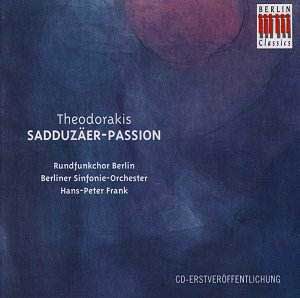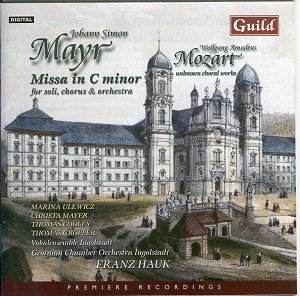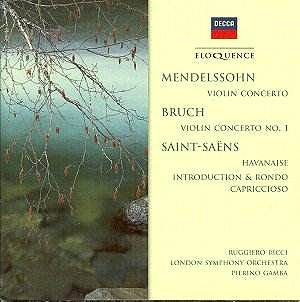 Composer: Mikis Theodorakis
Composer: Mikis Theodorakis
Works: Sadduzäer-Passion (1982)
Performers: Joachim Vogt (tenor), Jürgen Frier (baritone), Hermann Christian Polster (bass), Freidrich Wilhelm Junge (speaker), Rundfunkchoir Berlin, Berliner Sinfonie-Orchester, Hans-Peter Frank (conductor)
Recording: Metropol-Theater, Berlin, 23rd February 1983
Label: Berlin Classics 0092082BC
Mikis Theodorakis, the titan of Greek music and a prominent figure in the 20th-century cultural landscape, is often associated with the exuberance of “Zorba’s Dance.” However, his oeuvre extends far beyond this singular image, particularly in works such as the “Sadduzäer-Passion,” a complex, allegorical cantata that intertwines historical narrative with profound political commentary. Composed against the backdrop of Theodorakis’s own experiences with political repression in Greece during the “Colonels’ Coup,” this work serves as both an elegy and a reflection on his engagement with the Greek left. Sung in German and set to the text of his compatriot Michalis Katsaros, the “Sadduzäer-Passion” emerges not merely as a musical composition but as a poignant statement on the human condition.
The performance captured in this recording, while not without its flaws, offers a compelling interpretation of Theodorakis’s vision. Conductor Hans-Peter Frank leads the Rundfunkchoir Berlin and Berliner Sinfonie-Orchester with a palpable intensity that reflects the emotional gravitas of the score. The orchestra’s playing is marked by a vibrant orchestration that deftly combines traditional Greek modalities with Western classical techniques, creating a sound world that is both rich and evocative. The tenor, Joachim Vogt, and baritone, Jürgen Frier, deliver their lines with a clarity that anchors the more abstract elements of the piece, while Hermann Christian Polster’s bass resounds with authority, particularly in the climactic moments that demand a deep emotional commitment.
However, one cannot overlook the unsettling presence of the speaker, Freidrich Wilhelm Junge, whose delivery at times evokes a jarring resonance reminiscent of historical political rallies. This perhaps is not coincidental; the starkness of his recitation can be interpreted as a deliberate choice, aiming to evoke the weight of Theodorakis’s socio-political commentary. Yet, this intensity occasionally detracts from the music’s flow, creating moments where the narrative feels overshadowed by rhetoric.
The sound quality, while benefiting from digital remastering, reveals some limitations characteristic of live recordings from the era. Moments of distortion and background noise are present, which may distract the listener, yet they also serve to heighten the sense of immediacy in the performance. The recording captures the raw energy of the live event, enabling the listener to experience the visceral reaction of the audience, a testament to the work’s impact at the time of its premiere during the 9th Musik-Biennale Berlin.
Musically, “Sadduzäer-Passion” reveals a polystylistic tapestry, yet it ultimately coalesces into a cohesive statement. The opening movement, “Form meines Ego,” offers a deceptive lightness, quickly dispelled by the anguished textures of “Blinde Zeit.” The heart of the work resides in the sections “Im Toten Wald” and “Blonder Jüngling,” where Theodorakis’s Greek heritage permeates the music, infusing it with an archaic modality that resonates with both beauty and sorrow. The finale, characterized by a powerful climax, embodies a transformation of earlier themes into a harrowing warning, underscoring the work’s sociopolitical undertones.
Engaging with “Sadduzäer-Passion” is an exploration of Theodorakis’s multifaceted artistry, a work that demands attention for its historical context as well as its musical intricacies. While the recording presents certain imperfections, the emotional depth and intellectual richness of the piece remain undiminished. This work is essential listening for anyone seeking to understand the complexities of 20th-century music and the profound connections between art and political expression. The enduring relevance of Theodorakis’s message, coupled with the compelling performance, solidifies this recording as a significant contribution to the contemporary classical repertoire.



